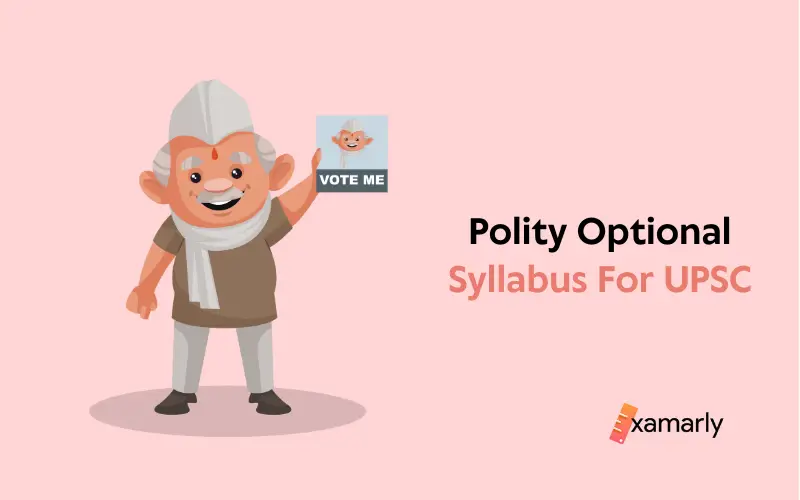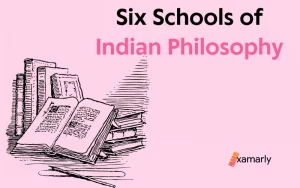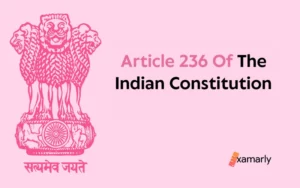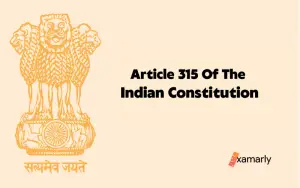If you plan to take the UPSC Prelims or Mains test, you should familiarize yourself with the Polity optional syllabus for UPSC. As part of this very engaging subject, students are tested on their ability to apply static information to current concerns. Although it overlaps with the GS Syllabus and the International Relations syllabus, it is a crucial component of the Prelims curriculum. Additionally, it is a fascinating topic, and the market is full of readily available materials. Many books on it are available, and you can choose many books to read it thoroughly.
- Polity Optional Syllabus For UPSC Mains
- Overlap With GS Paper
- Topic-Wise Distribution Of Indian Polity Optional Syllabus For UPSC
- UPSC Polity Syllabus For Prelims
- Indian Polity Syllabus For UPSC Mains
- Governance, Constitution, Polity, Social Justice:
- Preparation Strategy For UPSC Polity
- Resources for UPSC Polity
- Summing Up
- FAQs
Polity Optional Syllabus For UPSC Mains
The Indian Constitution, Indian Government, and Indian Polity are all covered within the UPSC Prelims & Mains Polity syllabus. This subject has a high weight and makes up roughly 15% of the exam questions. It covers the numerous facets of the constitution, the roles and obligations of various administrative institutions, the government’s policies, and other rights-based concerns the nation is now dealing with.
Polity is a crucial topic for UPSC preparation. It covers the duties of the several branches of government and their interactions. In addition, the Constitution, individual rights, Panchayati raj, and public policy are covered in the curriculum. For UPSC Prelims and Mains both, this subject is crucial.
Overlap With GS Paper
It overlaps with the GS Syllabus and the International Relations syllabus, it is a crucial component of the Prelims curriculum. Mastering this will result in fetching good marks in prelims and Mains exam.
Topic-Wise Distribution Of Indian Polity Optional Syllabus For UPSC
The entire constitutional framework and the operation of our political system are encapsulated in Indian polity. To make your preparation easier, we have divided the Indian Polity themes into smaller subtopics.
| Topic | Sub-topic |
| Constitutional Framework | Historical Background Constitutional Development Making of the Constitution Features of the Constitution Preamble The Union & Its Territories Citizenship Fundamental Rights Directive Principles of State Policy Fundamental Duties Amendment of the Constitution Basic Structure |
| System of Government | Parliamentary System Federal System Center-state Relations Inter-state Relations |
| Central Government | President Vice-President Prime Minister Central Council of Ministers Cabinet Committee Parliament Parliamentary Committee & Forums Supreme Court |
| State Government | Governor Chief Minister State Council of Ministers State Legislature High Courts Subordinate Courts Special Provisions for Some States |
| Union Territories & Local Government | Union Territories Scheduled & Tribal Areas Panchayati Raj Municipalities |
| Constitutional Bodies | Election Commission UPSC State PCS Finance Commission National Commission for SCs National Commission for STs Comptroller & Auditor General of India Attorney General of India Advocate General of State |
| Non-Constitutional Bodies | Planning Commission National Development Council National Human Rights Commission State Human Rights Commission Central Information Commission Central Vigilance Commission Central Bureau of Investigation Lokpal & Lokayukta NITI Aayog |
| Miscellaneous | Cooperative Societies Tribunals Official Language |
| Emergency Provisions | National Emergency President’s Rule or State Emergency Financial Emergency The 44th Amendment Act Effects and Implications of Emergency Role of President in the Time of Emergency Lok Sabha and Rajya Sabha Revoking Emergency |
| Current Affairs | Important Schemes (both Central & State) Recent Bills and Acts Passed in Parliament |
UPSC Polity Syllabus For Prelims
- Indian polity and governance – Constitution
- Political system
- Panchayati Raj Public Policy, Rights Issues etc.
Indian Polity Syllabus For UPSC Mains
The UPSC syllabus for General Studies Paper-II encompasses the Indian polity section. The polity section syllabus is given here:
Governance, Constitution, Polity, Social Justice:
- Indian Constitution historical underpinnings, evolution, features, amendments, significant provisions and basic structure
- Functions and responsibilities of the Union and the States, issues and challenges pertaining to the federal structure, devolution of powers and finances up to local levels and challenges therein
- Comparison of the Indian constitutional scheme with that of other countries
- Separation of powers between various organs dispute redressal mechanisms and institutions
- Parliament and State Legislatures structure, functioning, the conduct of business, powers & privileges and issues arising out of these
- Appointment to various Constitutional posts, powers, functions and responsibilities of various Constitutional Bodies
- Structure, organization and functioning of the Executive and the Judiciary Ministries and Departments of the Government; pressure groups and formal/informal associations and their role in the Polity
- Salient features of the Representation of People’s Act
- Government policies and interventions for development in various sectors and issues arising out of their design and implementation
- Statutory, regulatory and various quasi-judicial bodies
- Welfare schemes for vulnerable sections of the population by the Centre and States and the performance of these schemes; mechanisms, laws, institutions and Bodies constituted for the protection and betterment of these vulnerable sections
- Health, Education, Human Resources
- Development processes and the development industry the role of NGOs, SHGs, various groups and associations, donors, charities, institutional and other stakeholders
- Issues relating to development and management of Social Sector/Services relating to
- Important aspects of governance, transparency and accountability, e-governance- applications, models, successes, limitations, and potential; citizens charters, transparency & accountability and institutional and other measures
- Issues relating to poverty and hunger
- Role of civil services in a democracy
Related – 4 best books suggested by UPSC toppers to study Indian Polity for UPSC Mains
Preparation Strategy For UPSC Polity
Polity is a crucial topic for competitive exams, particularly for the UPSC CSE. Because of this, aspirants should take a calculated attitude while preparing their Polity paper for the UPSC. The candidates can efficiently complete the Indian Politics syllabus for the UPSC by using the practical advice provided below:
- For a stronger base, be careful to take the Political Science NCERTs of Class XI and XII.
- To have a thorough understanding of the topic, read the introductory Polity works, such as Introduction to the Indian Constitution by D.D. Basu and M. Laxmikanth.
- Prepare brief notes that emphasise the key ideas that will be useful during the revision process.
- To obtain an idea of questions asked recently, one need to look through the UPSC Previous Year Question Papers.
- Give as many practice exams (mock tests) as you can, which will aid in correcting any mistakes and will aid in enhancing answer writing.
- Finally, read the news because there are a lot of questions about the recent schemes by the government.
Resources for UPSC Polity
Books are a must for the UPSC Exam preparation. Below are the best books for the Polity syllabus for UPSC that you must have.
- Indian Constitution at Work- Class 11
- Political Theory- Class 11
- Contemporary World Politics- Class 12
- Politics in India Since Independence- Class 12
- Indian Polity book for UPSC- M Laxmikanth
- Introduction to Constitution of India- Durga Das Basu
- Important Acts that Transformed India- Alex Andrews George
- Important judgments that Transformed India- Alex Andrews George
You Might Also Like – Political Science Optional For UPSC
Summing Up
An important component of the UPSC civil services examination is the Indian Polity. It aids potential candidates in comprehending the country’s structure and constitution. There are various sections in the syllabus. The fundamental information concerning the Indian Constitution is included in the first section. Indian Polity is the main topic of the second half. For the UPSC civil services test, both of these portions are crucial.
FAQs
Is Polity Tough For UPSC?
Since the syllabus is factual and brief, the polity is one of the subjects that is easiest to score well in. In the UPSC Prelims’ Polity section, one can anticipate a lot of uncomplicated questions and, with careful preparation, obtain the majority of the responses correct.
Is Laxmikant enough for Polity UPSC?
You may almost achieve a flawless mark in the Polity section of the Prelims just by using Laxmikant. The language adopted in Polity is understandable even to a novice who is studying it for the first time. But it needs further revisions because it is factual.
Which part of Polity is most important for UPSC?
You should read about the President and the Central Council of Ministers. The role of the president’s powers, elections, and impeachment are all crucial. It’s important for the UPSC test because the President’s authority to enact laws and grant pardons is frequently in the news.
How to cover the syllabus of Indian polity for UPSC?
Candidates must carefully understand the curriculum before beginning the Indian polity section of the UPSC exam. They must compile all the necessary study resources and books on polity for the UPSC. The next step is for them to jot down a few quick notes by hand that will be useful for revision.






